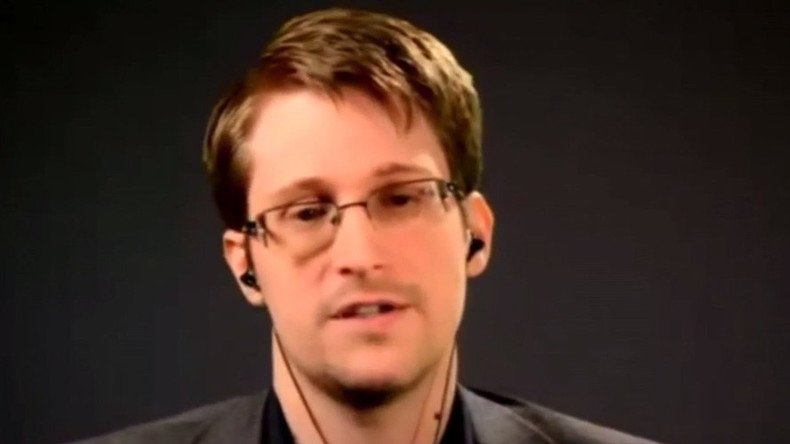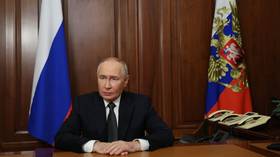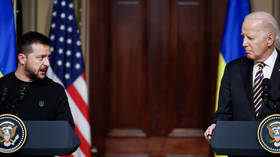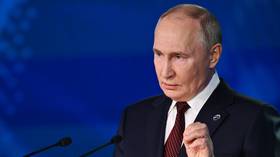‘Radical attack’ on free press : Snowden slams Quebec police chief over monitoring journalists

Edward Snowden has called for Quebec’s police chief to resign following reports that the police secretly monitored journalists’ phone calls.
Speaking via video link to students at McGill University in Montreal on Wednesday, the NSA whistleblower described the news as a “radical attack on the operations of the free press.”
On Monday it was revealed that the police had been secretly monitoring journalist Patrick Lagacé’s phone calls in an effort to identify his sources. On Wednesday, the police admitting they had done the same to six other journalists in 2013.
“This inverts the traditional dynamic of private citizen and public officials into this brave new world we’re facing of private officials and public citizens,” Snowden said.
"We are all being watched, regardless of whether we are doing anything right or wrong, and this is what drove me forward," he said. "Now surveillance technologies have outpaced the growth of democratic control."
The police claim these were exceptional cases, and that they were investigating police officers accused of fabricating evidence. Canadian police secured at least 24 surveillance warrants to track Lagacé’s phone, which included monitoring his whereabouts through his GPS.
Oh, Canada... https://t.co/D6kUPPDJ27pic.twitter.com/KpmvbVYw8d
— Edward Snowden (@Snowden) November 2, 2016
“From now on, local police can decide they don’t like what a journalist has been reporting and go to a justice of the peace, who’ll say, ‘Sounds great. Look at the GPS on his phone, figure out everywhere he’s been traveling, figure out anyone he’s communicated with,” Snowden told the crowd of 600. “No, you can’t actually read his emails, you can’t actually listen to his calls, but you can find out anyone he met with, who did he call, how long he was on the phone with them. With this, you can gain an extraordinary understanding of how this individual works.”
Police chief Philippe Pichet said Monday he was aware of the importance of freedom of the press, but that “there were criminal allegations against a police officer… and we have a job to do.”
“Rather than the police chief saying ‘all right this was clearly something that went too far and regardless of whether or not I authorised this operation, I recognise that to restore trust I need to re-establish the basis of accountability … for that reason I have chosen to resign.’ We don’t see the mayor calling for that, we don’t see the local premier calling for that,” Snowden said.
The Quebec government has since announced it will launch a public inquiry into the police surveillance of journalists, while Prime Minister Justin Trudeau said, “Obviously I think that the troubling stories – troubling for all Canadians – coming out of Québec and of this situation will lead to reflection on how we must and can continue to ensure protection of the press and their rights.”
Snowden also criticized Trudeau for failing to repeal Canada’s controversial anti-terror law, which he promised to do before he was elected.












